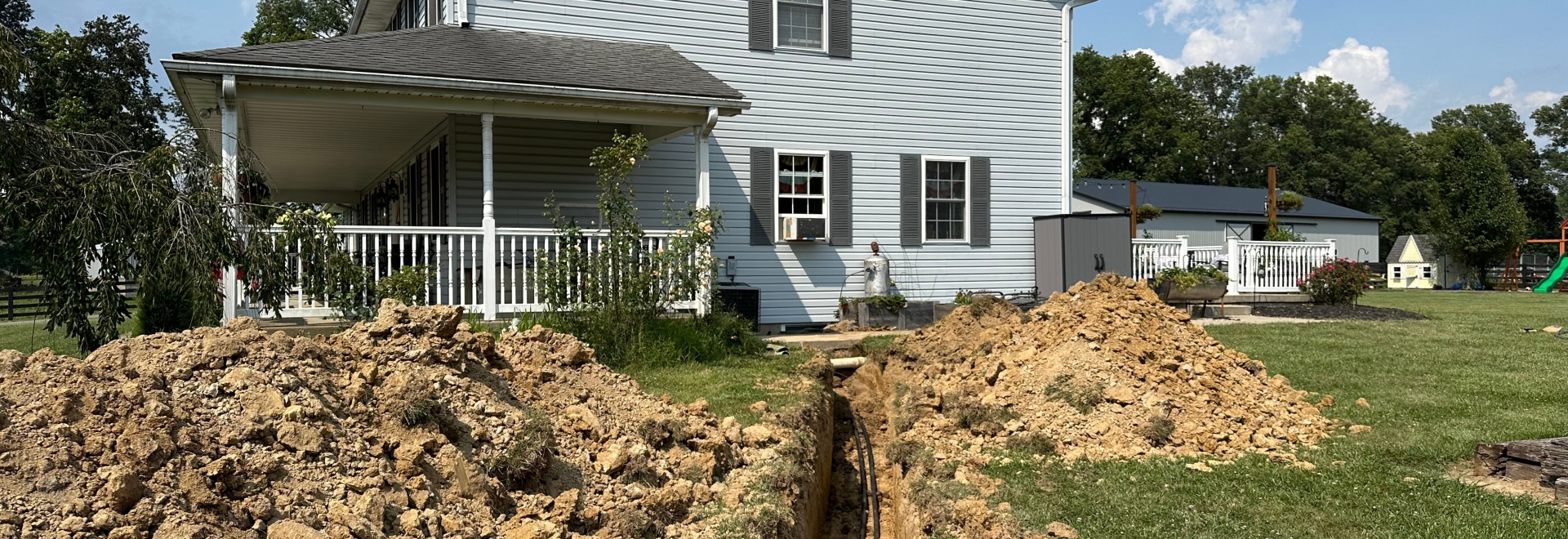
More and more homeowners are making the switch from expensive and unpredictable heating oil and propane systems to geothermal energy, a renewable and energy-efficient heating solution that significantly reduces home heating costs and reliance on fossil fuels. Making a decision to switch something can seem like a big transition, no matter what the switch might be – whether that’s a new phone or car, an operating system for your computer or an HVAC system for your home. But in the case of the fossil fuel-to-geothermal change, there are some obvious factors that are making this an increasingly common & easy choice.
How Geothermal Systems Work
Geothermal systems offer a constant and reliable resource, making home heating and cooling much more energy-efficient without the need for combustion or fuel. But how does a geothermal system actually work?
Around ten feet below the earth's surface, the ground maintains a steady temperature year-round. Even on the coldest winter days in New Jersey, the ground beneath the frost line stays between 50º-60ºF, and the same is true for the hottest summer days that hit the 90s. This stable temperature allows geothermal systems to either absorb or dissipate heat as needed.
Geothermal systems leverage this consistent underground temperature using a series of buried hoses called a ground loop. The ground loop circulates a water and refrigerant mixture to and from a heat exchanger, which brings the mixture to that stable, moderate temperature.
Converting Geothermal Energy to Home Heating and Cooling
Because the ground loop efficiently brings the heat exchanger to a moderate temperature, the heat pump has a much easier job when it comes to heating and cooling your home. It requires far less energy to increase the temperature of air from 55º to 75º, or to cool down 90º air to a comfortable level. This makes geothermal systems much more energy-efficient than conventional heating and cooling systems.
Simple Math: Energy Savings with Geothermal vs. Fossil Fuels
Liquid Propane (LP) and #2 Heating Oil (the kind used in homes) are petroleum-based energy sources; and while we are currently experiencing a period of pretty moderate & stable petroleum prices, we all know these products are only going to get more expensive over time, which means that your cost of home heating, be it with LP or #2, will likely continue to be a monthly pain point.
Using a renewable energy home heating process can significantly help reduce the cost of heating your home.. Compared to LP & #2, geothermal systems can offer savings anywhere between 40-80% on an annual basis.
Time savings
One complaint we hear a lot from customers in the Princeton region is the “hoping the fuel delivery company comes” scenario: as LP & #2 are both “delivered” by truck to the home, many clients find themselves having to wait for the fuel deliveries, with the hopes that they will have their tanks filled before they run out – and you know that things have a habit of running out at the most inconvenient times! But what if you could eliminate all that waiting time, and worrying time, from your schedule; that has value as well, yes? Geothermal energy gives you that convenience; and as with cost savings, it’s a more predictable way to go.
Longer Equipment Life for a Long Term Investment
Another benefit you will see by switching from heating oil to a geothermal system is geothermal equipment lifespans: Geothermal systems themselves have incredibly long life expectancies – roughly 25-35 years for the mechanical components, and most estimate more than 100 years for the underground piping components; which means that if you were to convert to a geothermal now, it is quite likely that you will have the same equipment in place for the rest of the years you own the home.
By comparison, Liquid Propane & Heating Oil systems have an estimated lifespan of 15-18 years; so statistically that means you could end up purchasing 2 or 3 LP or #2 Heating Oil systems at the same time you would’ve only purchased 1 Geothermal system – another “win” for the Geothermal option.
Making the Switch and Using Tax Rebates
Clearly, the switch from #2 Heating Oil or Liquid Propane to geothermal energy is an investment. You’ll want to consider your options and think about the payoff. One factor that really helps is a possible 30% federal tax credit currently available to homeowners who invest in geothermal heat pump installation. But whether you have decided to take action, or just want to know more about this alternative fuel source, call Princeton Air!
JS Needham-Master HVACR Lic. # 3980 | M Burt-Plumbing Lic. # 8389 | NJHIC # 13VH00255200 | PAHIC # PA001066
